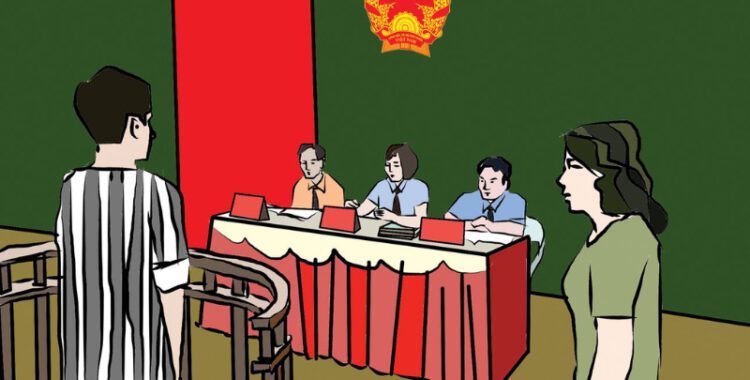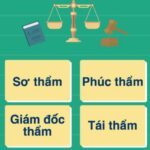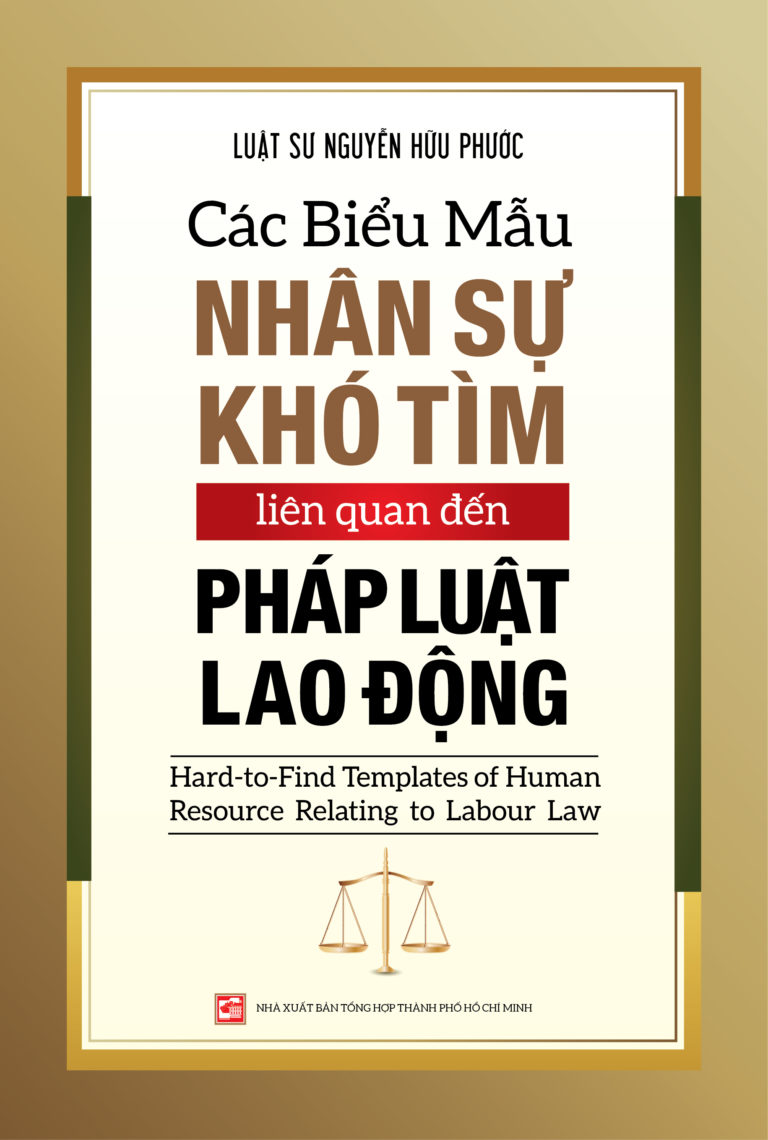Definition of appellate and the issues to note in appellate procedures
Appellate is the final adjudication procedure in the litigation process of Vietnam. After the first instance judgment or decision is issued, the involved parties or the defendants, the victims or the persons having interests and duties related to the case have the right to file an appeal and the Heads of The procuracy also have the right to prosecutorial appeal if they disagree with the first instance Court’s judgment, decision. Based on that, the Court of appellate will retry the case. The purpose of the appellate process is not only to respect and protect the rights of citizens in litigation proceedings but also to rectify any errors that may have occurred during the first instance Court’s proceedings. It aims to avoid mistakes in the trial process and ensure fairness and the legitimate rights and interests of all involved parties in the litigation proceedings. This article “Definition of appeals and the issues to note in appellate procedures” will help readers enhance comprehension of the role of the appellate procedure as well as the points to note in this procedure.
Definition and characteristics of appellate procedures
Definition
Appellate is the process by which a directly higher-level court re-examines a case when the judgment or decision of the Court of first instance has not yet become legally effective due to an appeal or a prosecutorial appeal. In particular, an appeal is when an involved party in a civil case, an administrative case or a defendant in a criminal case requests a higher court to re-examine part or all of the case based on the judgment or decision of the Court of first instance, which has not yet become legally effective. Prosecutorial appeal is a litigation activity of the Procuracy in requesting the directly higher-level court to retry a case that has a judgment or decision of the first instance Court.
During the appellate court session, the Court of appellate can either change, annul, or uphold the findings and decisions of the Court of first instance in its judgment and decision. Depending on the specific type of case, the resolution of the case according to the appellate procedure is governed by the procedures of the applicable Code of Civil Procedure, Code of Criminal Procedure, and Law on Administrative Procedure.
Characteristics
In the appellate procedure, for civil cases and administrative cases, in principle, only the part of the judgment or decision that is being appealed is not yet enforced and will be tried according to the appellate process[1]. In criminal cases, the Court of appellate has the authority to review other parts of the judgment or decision that are not subject to appeal or prosecutorial appeal if deemed necessary and supported by grounds. The Court of appellate can also amend the first instance judgment for defendants who do not appeal or are not subject to appeal or prosecutorial appeal[2]. The parts of the judgment or first instance decision that are being appealed or prosecutorial appealed are not enforced until the appeal process, except in cases where the law specifies immediate enforcement.
Issues to note in first appellate procedures
Jurisdiction of the Court of appellate
In principle, a Court with the authority to conduct appellate proceedings is the directly higher-level Court of the Court that issued the first instance judgment or decision. For administrative and civil cases, the Provincial People’s Court or the Municipal People’s Court under central authority shall conduct appellateproceedings for cases tried at first instance by the District-level People’s Court. The High People’s Court shall conduct appellate proceedings for cases tried at first instance by the Provincial-level People’s Court based on territorial jurisdiction.
In criminal cases, the appellate authority for the judgment or decision of the District-level and Provincial-level People’s Courts is similar to that of civil and administrative cases. The authority to conduct appellateproceedings for the judgment or decision of the local military Court belongs to the military Court of a military zone. For the judgment and decision of the military Court of a military zone, the appellatejurisdiction belongs to the Central military Court[3].
Time limit of appeal in appellate procedures
In civil and administrative lawsuits, the time limit for appeal against the judgment of the Court of first instance is 15 days from the date of judgment pronouncement. However, for appellants who were absent from the court trial or were not present at the time when the judgments were pronounced but have a valid reason, the appeal time limit is calculated from the date they received the judgment or the date the judgment was posted. If there is no valid reason, the appeal time limit is calculated from the date of judgment pronouncement. The time limit for appealing the decision of the court of first instance is 07 days from the date the appellant receives the decision or from the date the decision is posted, as specified in the Code of Civil Procedure and Law on Administrative Procedure.
In civil matters, the appellants have the right to appeal the decision on resolving civil matters within 10 days from the date of the Court’s decision. In cases where they were absent from the meeting to resolve civil matter, the time limit is calculated from the date they received the decision or from the date the decision was announced or posted[4].
In criminal lawsuits, the time limit for appealing the judgment of the Court of first instance is 15 days from the date of judgment pronouncement. For defendants or involved parties who were absent at the court trial, the appeal time limit is calculated from the date they received the judgment or the date the judgment was posted. The time limit for appealing the decision of the Court of first instance is 07 days from the date the appellant receives the decision[5].
The appeal date for civil, administrative, and criminal cases is determined as the date of submitting the appeal for cases where the appellant submits the appeal directly. For cases where the appeal was sent through the postal service, the appeal date is calculated from the date of the postmark on the envelope. In case of an appeal outside the time limit prescribed by law, it is considered an overdue appeal. According to the Code of Civil Procedure, the Code of Criminal Procedure, and the Law on Administrative Procedure, an overdue appeal may be accepted if there is a force majeure reason or an objective obstacle that prevents the appellant from filing the appeal within the time limit. The acceptance or rejection of an overdue appeal is determined by the overdue-appeal-considering Panel established by the Court of appellate.
Persons with the right to appeal and prosecutorial under the appellate procedure
In civil cases, those with the right to appeal are the involved parties, their representatives, and the entities or organisations that initiated the civil case. Those with the right to prosecutorial appeal are the Heads of the procuracy at the same level and the directly higher-level of the Court that conducted the first instance trial[6].
In criminal cases, those with the right to appeal are the accused, victims, the representatives of the accused or victims, the involved parties, and persons with related rights and obligations in the case. Those with the right to prosecutorial appeal are the Heads of the procuracy at the same level and directly higher-level of the Court that conducted the first instance trial[7].
In administrative cases, the involved parties or their legitimate representatives have the right to appeal. The Heads of the procuracy at the same level and directly higher-level of the Court that conducted the first instance trial, have the right to prosecutorial appeal against the first instance judgment or decision[8].
Object of appeal and prosecutorial appeal under the appellate procedure
The objects of appeal and prosecutorial appeal under the appellate procedure are the first instance decisions and judgments that have not yet become legally effective. The decisions of the first instance Court, such as decisions on the application of provisional emergency measures, decisions to transfer a case to another court for resolution, decisions to recognise the involved parties’ agreements, or decisions to bring a case for trial, are not subject to an appeal or a prosecutorial appeal under the appellate procedure.
Validity of judgments and decisions of the first instance Court after being tried under the appellate procedure.
The appellate Court may make the following decisions concerning judgments and decisions of the firstinstance Court: (i) upholding the first instance judgment and decisions; (ii) amending in part or in whole the first instance judgment and decisions; (iii) annulling the first instance judgment, annulling a part of the first instance judgment, or annulling the first instance decisions. For each of the above decisions of the Court of Appeal, the validity of the judgment or decision may be affected as follows:
- Regarding the decision to uphold the first instance judgment and decision, the Court of appellatemakes this decision when it finds that the decisions of the first instance judgment are well-founded and lawful. The judgment and decisions of the Court of appellate become legally effective from the date of decision or pronouncement[9]. Thus, the judgment and decisions of the first instance Court remain in effect and are enforceable immediately in such case.
- In cases where the Court of appellate decides to amend in part or in whole the first instance judgment or first instance decision, the amended part of the first instance judgment or decisions becomes effective on the date of the appellate judgment or decision takes effect.
- In case the Court of appellate decides to annul a part of or the entire first instance judgment, annul the first instance decision, then the judgment or a part of the first instance judgment or first instance decision being annulled shall not be effective. Civil cases, administrative cases or criminal cases may be retried according to first instance procedures or suspended.
Above is the general content related to the Definition of appellate and the issues to note in appellate procedures that Phuoc and Partners share with readers. If you have any difficulties related to the legal field, please contact us. Phuoc & Partners is a law professional consulting firm established in Vietnam and which currently has many nearly 100 members working in offices in Ho Chi Minh City, Hanoi and Danang. Phuoc & Partners is also considered as one of the leading law firms with specialised staff in the legal field in Vietnam, whose practice areas are ranked first in the legal market such as Labour and Employment, Taxes, Mergers and Acquisitions as well as Litigation. We are confident to be one of the Law Firms providing the best legal services to clients.
[1] Article 293 of the Code of Civil Procedure 2015; Article 220 of the Law on Administrative Procedure 2015.
[2] Article 357 of the Code of Criminal Procedure 2015.
[3] Article 344 of the Code of Civil Procedure 2015.
[4] Article 372 of the Code of Civil Procedure 2015.
[5] Article 333 of the Code of Criminal Procedure 2015.
[6] Article 271, 278 of the Code of Civil Procedure 2015.
[7] Article 331, 336 of the Code of Criminal Procedure 2015.
[8] Article 204, 211 of the Law on Administrative Procedure 2015.
[9] Articles 313, 314 of the Code of Civil Procedure 2015; Articles 355, 361 of the Code of Criminal Procedure 2015; Articles 242, 243 of the Law on Administrative Procedure 2015.










